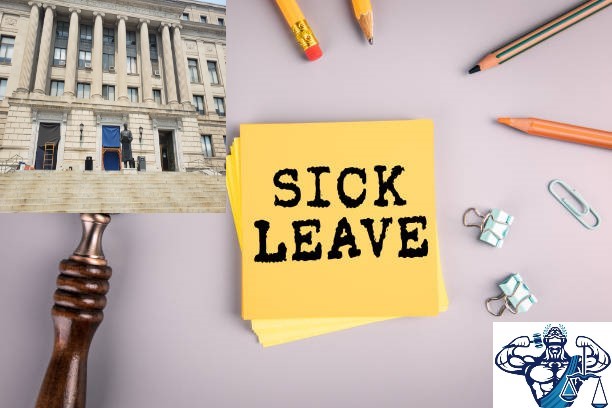Here at the Law Office of Vincent Miletti, Esq. and the home of the #UnusuallyMotivated movement, we take pride as a resilient and dependable legal services firm, providing such services in both a traditional and online, web-based environment. With mastered specialization in areas such as Employment and Labor Law, Intellectual Property (IP) (trademark, copyright, patent), Entertainment Law, and e-Commerce (Supply Chain, Distribution, Fulfillment, Standard Legal & Regulatory), we provide a range of legal services including, but not limited to traditional legal representation (litigation, mediation, arbitration, opinion letters and advisory), non-litigated business legal representation and legal counsel, and unique, online legal services such as smart forms, mobile training, legal marketing and development.
Still, we, here at Miletti Law®, feel obligated to enlighten, educate, and create awareness, free of charge, about how these issues and many others affect our unusually motivated® readers and/or their businesses. Accordingly, in order to achieve this goal, we have committed ourselves to creating authoritative, trustworthy & distinctive content, which looks to not only educate, but also deliver in a manner that only Miletti Law® can. Usually, this content is featured as videos posted on our YouTube Channel https://www.youtube.com/channel/UCtvUryqkkMAJLwrLu2BBt6w and blogs that are published on our website WWW.MILETTILAW.COM. With that, the ball is in your court and you have an effortless obligation to subscribe to the channel and sign up for the Newsletter on the website, which encompasses the best way to ensure that you stay in the loop and benefit from the knowledge bombs that we drop here!
To achieve our goal of keeping you informed, this blog is Part X and an update of our series on federal laws that apply to the issues of workplace harassment, discrimination, & retaliation in New York. In Part IX, we provided you with an overview of “Disparate Impact Claims” as recognized under the various federal laws. Accordingly, to move the discussion forward, we will hammer on “Harassment Claims,” as recognized by applicable federal laws in this blog and part X of the series.
Harassment Claims recognized under Federal Laws Applicable to Workplace Harassment, Discrimination, & Retaliation in New York.
Americans with Disabilities Act (ADA)
Disability-based harassment claims are not expressly allowed under the ADA. However, courts have recognized that disability-based harassment is prohibited by the ADA and, accordingly, held that a cause of action for hostile work environment harassment is created by the ADA, similar to the one created under section 42 U.S.C. § 2000e et seq. of the Title VII of the Civil Rights Act of 1964.
Title VII of the Civil Rights Act of 1964 (Title VII)
As provided for under Section 42 U.S.C. § 2000e of Title VII, employers are prohibited from discriminating against employees based on national origin, sex, color, race, and religion. Under Title VII, employment discrimination also encompasses employee harassment. As such, sex discrimination includes sexual harassment and a violation of this Act. Title VII recognizes the abusive or offensive environments in which employees work regarding “hostile environment cases” related to sexual harassment or forms of protected class harassment prohibited by Title VII. In such a case, the harassment is considered so pervasive that the conditions and terms of employment for an employee are altered.
Title VII recognizes that hostile work environment harassment can be committed by anyone in the workplace, including, but not limited to coworkers, supervisors, vendors, clients, independent contractors, volunteers, and guests. Usually, employers use compensation, employment, and/or employment benefits as a condition for unwelcome behavior, which mostly comprises sexual favors, in “quid pro quo” sexual harassment cases. However, “quid pro quo” harassment can be engaged only by persons with supervisory authority over an employee.
Age Discrimination in Employment Act (ADEA)
Under the ADEA, employers are prohibited from harassing employees based on sex. The same standards applied in Title VII harassment claims are applied in ADEA harassment claims by courts.
Section 1981
Section 1981 permits employees to make hostile work environment harassment claims. Just like the ADEA, the standards applied in Title VII harassment claims are applied when courts analyze harassment claims under Section 1981.
Uniform Services Employment and Reemployment Rights Act (USERRA)
Following the cause of due process, harassment claims may also be brought forth under the USERRA as long as the plaintiff meets some requirements. For instance, in the Second Circuit, one district court has held that a plaintiff must provide evidence that insult, ridicule, and discriminatory intimidation, which is sufficiently pervasive or severe to interfere with the employee’s conditions of employment, permeated the workplace, condition for establishing a hostile work environment claim under USERRA.
In Part XI, we will move forward the discussion by hammering on “Vicarious Liability for Harassment” under these and other federal laws applicable to workplace harassment, discrimination, & retaliation in New York.
Until then, stay tuned for more legal guidance, training, and counsel. In the interim, reach us with questions or comments on our website at the Contact Us page!
Always rising above the bar,
Isaac T.,
Legal Writer & Author.
 Professional Legal & Business Services And Representation - English & Espanol!
Professional Legal & Business Services And Representation - English & Espanol!

 314-648-2586
314-648-2586 CALL US NOW
CALL US NOW







